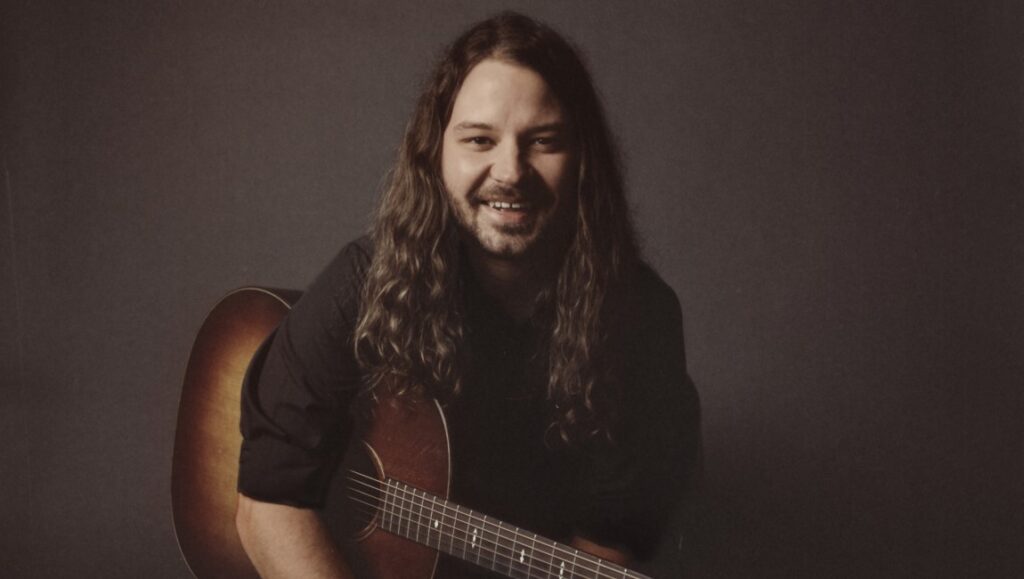Gunna
Well, he’s gone and done it again: Gunna has released yet another masterpiece, the type only Gunna could or would ever make. But we’re not Gunna, nor ever will be Gunna, so who are we to judge what Gunna does or doesn’t do? We’re here to praise Gunna, not to bury him; we shall not criticize or make excuses, but to understand a perspective outside of our own: that of Gunna — one Wunna by nickname, Sergio Kitchens by birthright — the man of the hour, one who has practically perfected his artistic process through steady repetition. By this point in time — for those not in the know of Gunna’s chronology, this release is the fourth in his Drip Season series — the facts of this case have been credibly established: Gunna simply has one of the finest ears in modern hip-hop (dare I say in modern music? Sure.) for selecting sensational beats, just complete heaters every time, and sounding crispy as hell over them. Producer Wheezy deserves not only a Grammy for his contributions to “too easy,” but the Nobel Peace Prize; that dizzying harp loop and smooth guitar melody lilt off the clapping bassline like rose petals on a fresh morning dew.
But who was that beat made for? It was envisioned for Gunna, and Gunna alone; that, or Wheezy recognized that Gunna was the most suitable candidate to fulfill his vision, and fulfilled it has been. Sure, there are others on the track (Future and Roddy Ricch on the high-octane remix), but it’s Gunna who is the glue that holds the enterprise together. And in that sense, to take it a step further, Gunna is the caulk of the rap game: he holds together the sturdiest taste-makers in order to produce material better than their individual efforts. On the powerful “pushing P,” a track dedicated to the enthusiastic new “P” meme Gunna has created in order to spread positivity throughout the community, he provides space for his mentors to shine: Future drops one of his more inspired Future-isms in years (“She not a lesbian, for P, she turn Pesbian”) and an equally motivated Young Thug revels in the lunacy (“I just fucked a cup of water”).
Speaking of intercourse, while discussing DS4Ever at any sustained length, one must mention Gunna’s deep love for nutting. The man can’t stop bringing it up here. Like on the chorus for “mop,” where he claims he “nutted all over her face / And now she look like a cow,” or on “lotta cake,” this time flaunting his passion: “Let your ho gеt the nut, she a cashew.” Even on a sweet duet with his girlfriend, R&B-singer Chloe Bailey (“You & Me”), it’s heavily implied he’s going to nut in her — and the two make it sound like the beautiful, sensual act that it is. “P power” has Gunna and Drake mutter-rapping about how much they love pussy, to the point that we begin to love them even more for loving pussy; simply put, no man loves nutting in good pussy like Gunna, and it’s precisely that type of passion that bleeds over into and elevates some of his more live-wire vocal performances throughout. One thing Gunna hates? Freddie Gibbs, viciously roasted on “poochie gown,” extolled as an embarrassed loser who’s gonna need to leave town running after this one. Imagine, you’re major lame Freddie Gibbs, going about your daily activities being a relevant loser, and then suddenly you hear Gunna — objectively one of the most popular and loved musicians in the free world — say you’re telling fibs, the most dishonorable and disloyal practice imaginable? Freddie, thankfully, is out like the garbage he is; Gunna, it seems, is here to stay.
Writer: Paul Attard Section: What Would Meek Do?

The Lumineers
After a slower rollout than normal, The Lumineers have dropped their fourth full-length album, Brightside, their second as a duo since Neyla Pekarek left the band, and featuring multiple members of their touring band as fill-ins. The record reflects a slightly different approach for Wesley Schultz and Jeremiah Fraites, opting for a larger sound than on 2019’s III, and the result is mostly invariable, with a single standout cut rising above while the rest feels fixed in the same rut that the band has been occupying since their first record.
The Lumineers have long been the object of scorn, largely from indie-minded music critics and traditional rock fans, and the criticisms levied aren’t exactly inaccurate, as the band is largely responsible (along with Mumford and Sons) for a mostly intolerable era of twee indie folk pop that has infested radio play and festival circuits alike. There’s a sincerity — though mostly devoid of anything endearing — that occupies the corners of their first records, absent only on tracks that stripped down the “HO”s and the “HEY”s to a looser, acoustic sound. And by and large, Brightside suffers from the same pitfalls, with distinctly goofy lyrics sung with befuddling self-importance, as if they’re the peak of profundity. There’s also a new level of production here that pushes the band more toward the “pop” side of their folk-pop coin, but all without fully committing to that shift. For each track, there’s a verse and roughly half a chorus written, replete with a repetitive riff and an emotionless hook, all reflective of a sound that’s been covered plenty before, and better.
The primary impression, then, is that as little as listeners are likely to be into listening to this, it seems the duo was even less interested in making it, despite the constant targeted advertising conveniently insisting that this was “their favorite album so far.” Indeed, the commitment to the corporatization of their own music is simultaneously indicative of the problem with the album and the state of the genre, with many of these artists immediately signing big label contracts and abandoning the sound of their roots, which in most cases was largely cribbed already. It’s a soulless way to produce music, and it largely shows here. The only moment that comes close to transcending this cynical approach to music-making is the album’s title track, which nearly convinces of better material to follow. Alas. The lyrics are likewise disposable, mostly consisting of strung-together phrases that mean nothing and are for some reason present in several songs here: “tonight baby,” “light in your eyes,” “smoke from a cigarette.” If this kind of nonsense is intended to paint some picture for listeners, it ends up as strictly motel art.
There’s no denying The Lumineers incredible success. They’ve made silly amounts of money, they’ve produced tracks that were enduring hits on the charts, and they’ve toured alongside legacy acts like Tom Petty and U2, extending their gravitational pull to an older generation of fans. It’s tough to begrudge them this level of success, something many acts would kill for, but it remains fair to ask: At what cost? The Lumineers answer that question succinctly on their latest, and the answer seems to be artistic integrity. There are many albums that will come out in 2022 that you should listen to, and with The Lumineers continuing their devolution with Brightside, it’s fair and easy to proclaim that this is decidedly not one of them.
Writer: Andrew Bosma Section: Pop Rocks
Anaïs Mitchell
Hadestown has ruled the last decade of Anaïs Mitchell’s career, and with good reason. The hit musical turned a once uber-indie folk artist into a name that both music and theatre nerds recognize. Hadestown, a jazzy retelling of the Orpheus and Eurydice myth (based off of Mitchell’s folk-opera album of the same name) won eight out of 14 Tonys in 2019, with Mitchell winning Best Original Score. It’s no surprise, then, that Mitchell’s name has become synonymous with a project she has invested so much in, but her newest record turns her focus in a different direction, meditating instead on the power of memory.
On the whole, Anaïs Mitchell is a quiet, low-key album with a deeply introspective — but warm — tone. In an interview with NPR, Mitchell referred to the record as “an escape pod” from her Broadway life, but it’s more than that. There are no worries of a fraught political climate or a global pandemic here; with its timeless atmosphere, it could be a work from our present or from seven years in the past. Rather, everything is slow and still, like a calm June evening. Josh Kaufman’s warm production suits and supplements Mitchell’s voice beautifully, but never overshadows her melodies and songwriting.
Lyrically, the album is a collage of memories: of a city she left (“Brooklyn Bridge”), of a fellow songwriter she loved (“On Your Way,” dedicated to Felix McTeigue), and of endless youthful nights driving around town (“Backroads”). Mitchell never gets too over-steeped in nostalgia for the good old days, though; in “Backroads” she sings, “different cop on the same night / stopped a kid about a tail light / somebody thought it didn’t look right / might as well have said he didn’t look white,” an older and wiser reflection on a world larger than her own. Similarly, on “Little Big Girl,” a track about a woman aging while she still feels as helpless as a kid, she examines how girls are socialized to “let him have his way instead of saying what you want,” the price of growing up in a world that still largely caters to men.
For all the power of those musings, there are a couple weak spots on the album; “Now You Know” is a stream-of-conscious confession to a lover about all the thoughts racing through her head, but “when we make love, I think about children / and I think about dying, lying in your arms” scans a bit melodramatic given the album’s general lyrical temperament. Likewise “The Real World” feels more like a preachy parent telling a kid to put down their phone and to absorb what’s around them — which isn’t a bad sentiment, but one that’s certainly not as elegant as what’s found on the rest of the record. Still, such moments remain relatively brief and quickly breeze by, and at just over half an hour, Anaïs Mitchell is an easily digestible album that still pleases upon repeat listens. It’s a lovely piece of art to wade through, a pleasant excuse to momentarily leave your life behind and traipse through someone else’s.
Writer: Alex Clifton Section: Ledger Line

Brent Cobb
Thinking back on my own experiences growing up in a tiny rural church just two doors down the road from my grandparents’ house, the title of Brent Cobb’s new southern gospel album, And Now, Let’s Turn to Page…, strikes me for its precision in evoking memories of well-worn hymnals and congregational song services. Hell, I can still remember the page numbers from that hymnal for half of the songs Cobb has curated for this set, and I could probably still bang some of them out on the piano under duress. What Cobb has accomplished with this album, then, is less a record that’s focused on the actual gospel messaging in “Just A Closer Walk With Thee,” “In the Garden,” and “Old Rugged Cross” than it is on recreating a very particular shared experience. That he’s so successful in doing so is a credit both to Cobb’s interpretive skill — he’s such a low-key fantastic country singer that it’s easy to let the range of his performances slide by — and to his cousin Dave’s ace production. A greater compliment than it might read, And Now… is Dave Cobb’s best production work in ages, showing greater sonic diversity and deference to a performer and material than he often does. “Are You Washed in the Blood” turns into a credible and unexpected funk rave-up, while “We Shall Rise,” one of the handful of killer original tunes here, hits its hallelujahs as a fiery inspirational song. What both Cobbs seem to be interested in isn’t about proselytizing or testifying but, instead, is the power of southern gospel music as a vehicle for emotion and action. To that end, And Now… is a real triumph.
Writer: Jonathan Keefe Section: Rooted & Restless
Aaron Lewis
In July 2021, Aaron Lewis released “Am I the Only One,” a conservative protest song about how the world has gone crazy because Confederate statues have been pulled down and Springsteen hates Trump. Lewis thinks he’s tugging at heartstrings, but he just sounds like a whiny middle-aged male who wants the world to remain static. It’s quite an easy song to dunk on: the lyrics are trite, shoving in references to the flag and freedom wherever possible, and the melody is awkward — “the red and white / and the blue” is delivered as if the latter color is totally divorced from the flag. In general, it just doesn’t sound great, and even for those who don’t vehemently object to every word falling out of his mouth — this writer included — his vocals do nothing to impress.
Prior to the release of Frayed at the Ends, Lewis described the album as “saying things that need to be said about how people actually live,” a quote which indicated Lewis was ready to drop more conservative truth bombs in an effort to own the libs. Had he followed that impulse, it would’ve made the album more interesting at least, offering listeners meatier material to react to. Instead, the album is one long, turgid bummer, a record about how life is hard and lonely. That’s not necessarily bad fodder for a record, but when the songwriting is as generic as Lewis’s, it makes for an intensely boring listen.
Aside from “Am I the Only One,” there are two other “political” songs. “Everybody Talks to God” begins with a real r/ThatHappened story of an old man praying in public, only to get shut down by a mean ol’ atheist who tells him off for believing in a myth. Said atheist gets his comeuppance at the end when he’s killed in a car wreck and has to have his own conversation with God. It’s all a bit hamfisted, to say the least. Far more effective is “They Call Me Doc,” a song about a veteran returning to a country that doesn’t care about the hell he’s been through. Lines like “you’ll never know the heartache of looking a grown man in the eye / when he asks you ‘am I gonna make it?’ and you gotta lie” are incisive and heartbreaking, and speak to a legitimate concern for veteran care in America, but sadly such moments remain few on the record. (It’s worth noting that this song sports a co-write from an actual veteran, which may be why it’s so affecting.)
The rest of the album is redundant and dull. Songs like “Pull Me Under,” “Kill Me Like You Love Me,” “Sticks and Stones,” and “Goodbye Town” try to take on the same shade of heartbreak, but with little to differentiate them. There are lines about “goodbye roads,” “angels,” and “whiskey” scattered throughout, blessed with no sonic variation. With over half the songs clocking in at four-plus minutes, Frayed becomes a slog that is difficult to care about if you are not already invested in Lewis’s POV and/or career. Perhaps the most fitting song on the record is the confused “Life Behind Bars,” a song comparing his chosen life of music with prison. “No jail, no bail, and hell, no parole” Lewis sings mournfully, as if his musical career is a life sentence. It’s a weird metaphor, particularly if we’re supposed to understand that as a musician he likes music. Then again, an album as mediocre as Frayed at the Ends demonstrates exactly how much he cares about his craft in the first place.
Writer: Alex Clifton Section: Rooted & Restless


Comments are closed.